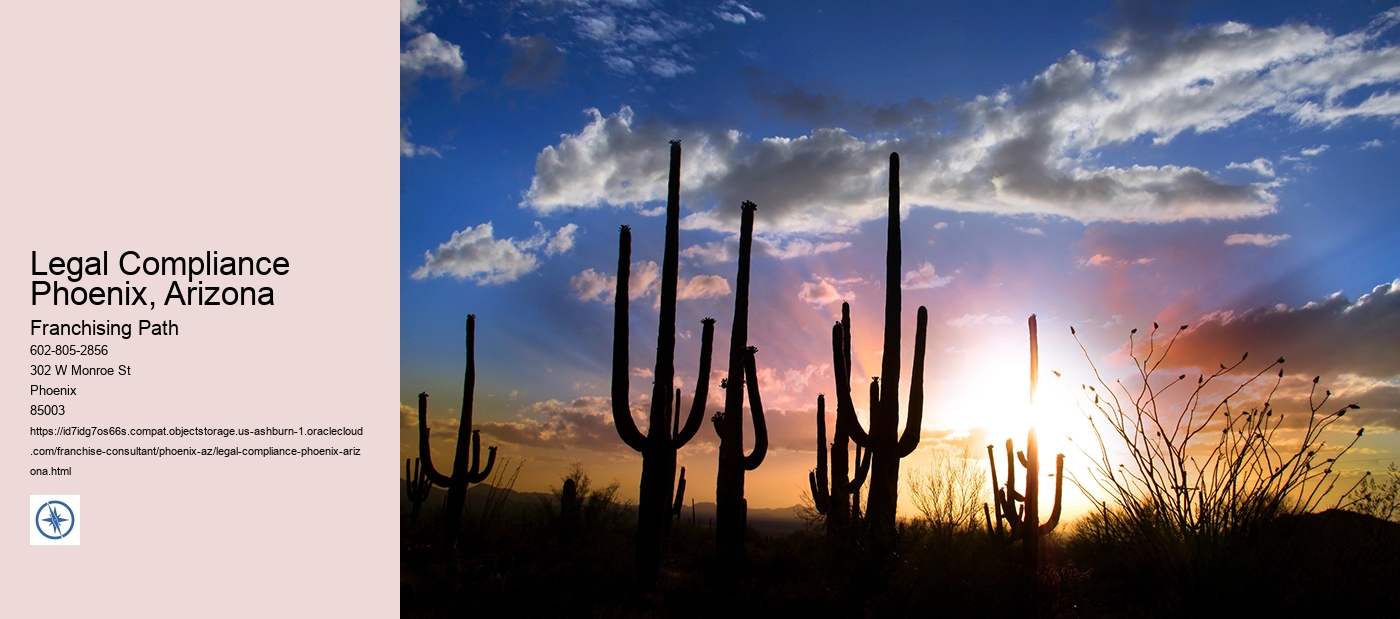Legal Compliance in Phoenix, Arizona
Nestled in the heart of the southwest desert landscape, Phoenix, Arizona stands not only as a testament to natural beauty but also as a bustling metropolis with intricate legal frameworks. Legal compliance, an essential facet of maintaining law and order within any jurisdiction, holds particular significance in this vibrant city. Whether it's businesses adhering to regulations or individuals following local laws, ensuring compliance is crucial for fostering a stable and prosperous community.
Phoenix's legal environment is shaped by a combination of federal laws, state statutes, and municipal codes. The complexity of these layers necessitates vigilant oversight and understanding from those living and operating within the city. For businesses, this means navigating through employment laws, zoning regulations, environmental standards, tax obligations, and more. Failure to adhere to these regulations can result in penalties ranging from fines to severe legal repercussions that could jeopardize the very existence of an enterprise.
One area where legal compliance is particularly critical is in labor laws. Arizona enforces both federal mandates like the Fair Labor Standards Act (FLSA) and specific state-level requirements such as the Arizona Minimum Wage Act. Employers must ensure they are paying their employees at least the minimum wage set forth by state law while also complying with federal overtime provisions. This dual layer of legislation requires meticulous record-keeping and constant vigilance to avoid potential lawsuits or sanctions.
Environmental regulations represent another significant domain requiring strict adherence. The arid climate of Phoenix brings unique environmental challenges that necessitate stringent water use policies and pollution controls. Businesses must comply with guidelines laid out by agencies like the Environmental Protection Agency (EPA) at the federal level and corresponding state departments such as the Arizona Department of Environmental Quality (ADEQ). Ensuring compliance here not only avoids hefty fines but also contributes positively to sustainability efforts critical for preserving Phoenix's natural heritage.
Zoning laws further illustrate the importance of regulatory compliance in Phoenix. These laws dictate how land within city limits can be used-whether for residential purposes, commercial activities, industrial operations or other uses. Local government bodies enforce these zoning rules rigorously to maintain orderly development patterns across the rapidly growing urban area known colloquially as The Valley. Failure on part developers or property owners meet established criteria could lead substantial financial losses due project delays demolitions non-compliant structures.
Taxation forms yet another pillar underpinning system ensuring all entities contribute fairly towards public coffers supporting infrastructure services benefiting entire populace . Both individual residents corporations alike obliged file returns pay requisite amounts accordance Internal Revenue Service IRS directives supplemented additional stipulations State Arizonas Department Revenue DOR This aspect often proves challenging given evolving nature tax policy frequent amendments necessitating proactive stance staying abreast changes avoiding inadvertent breaches resulting audits penalties .
On personal front citizens themselves subject myriad local ordinances governing aspects daily life ranging traffic rules waste management animal control noise restrictions host others Collectively these create structured environment wherein everyone knows boundaries operates safely predictably
Moreover taking proactive measures facilitate smoother navigation labyrinthine world involves seeking professional assistance many instances Lawyers specializing fields relevant needs invaluable interpreting intricacies offering sound advice ensuring remains right side especially crucial matters litigation potentially devastating consequences
In conclusion essence revolves around balancing act between fulfilling obligations deriving benefits stability security offers entails commitment diligence awareness change adaptability key elements successful strategy ultimately leads thriving harmonious society Nestled amidst stunning Sonoran Desert backdrop demonstrates importance framework enabling flourish responsibly sustainably
Business Model Planning Phoenix, Arizona

